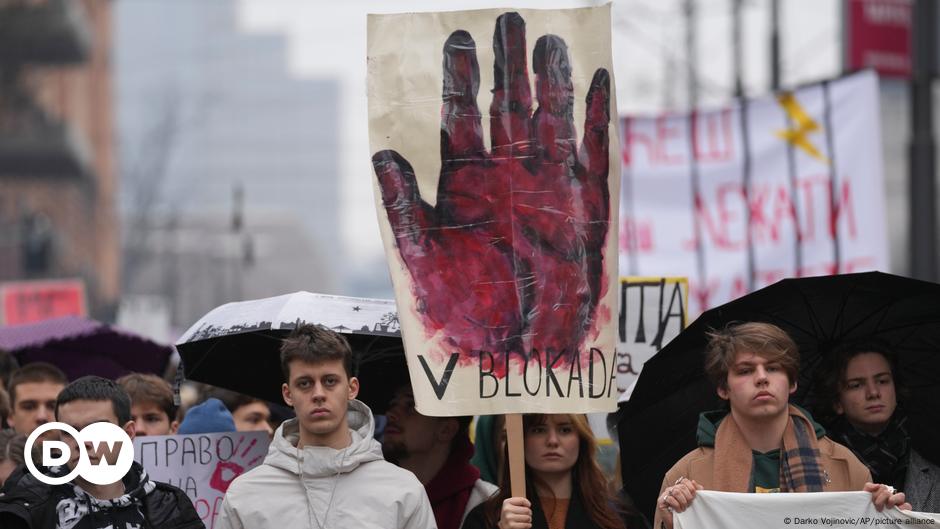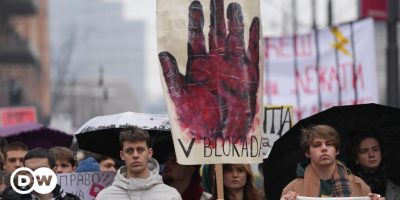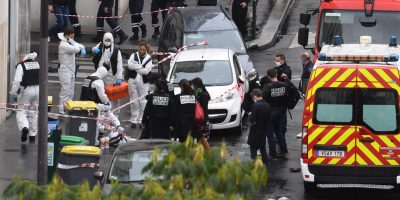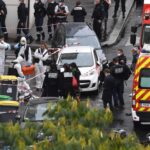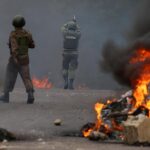Thousands of people on Friday again took to the streets of Serbia‘s capital to join anti-government protests amid calls for a general strike.
The student-led protests forced businesses throughout Serbia to shut their doors, including many schools with teachers’ unions backing the call to strike.
As well as Belgrade and Novi Sad, protest marches also took place in the southern city of Nis and smaller cities, including Jagodina, where populist President Aleksandar Vucic was expected to address a counter-demonstration.
Why are thousands protesting in Serbia?
There have been repeated protests since the roof collapse at the Novi Sad train station in northern Serbia, which killed 15 people.
Demonstrators blame the incident on widespread corruption, nepotism and poor construction work and have called for swifter judicial action against those found responsible.
The main station, which had been refurbished twice in recent years, was part of a wider infrastructure deal involving Chinese state companies.
Prosecutors have indicted 13 people, including the former Infrastructure Minister Goran Vesic. The indictments, however, have not yet been confirmed by a court to become valid.
Serbia: Anger mounts after fatal train station roof collapse
Repeated mass action since November tragedy
Friday’s mass action coincided with weekly protests, where demonstrators blocked roads across Serbia at 11:52 a.m. local time (1052 GMT) — the exact time the roof collapsed in Novi Sad — and held 15 minutes of silence.
Vucic and his supporters accuse the students of working under orders from foreign powers to overthrow the authorities, while pro-government supporters have launched repeated attacks on protesters.
Serbia: Thousands join anti-government protests in Belgrade
kb/sms (Reuters, AFP, AP)

